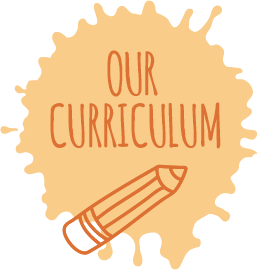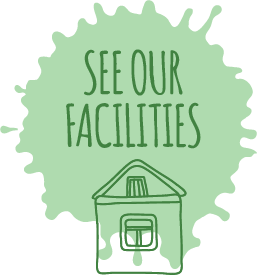
Home Our Teachers Forms/info Philosophy Testimonials Curriculum Contact




Our school functions according to the following principles:
We endeavour to develop the physical and emotional faculties of the child, to grow his/her whole personality in a holistic manner, aid it to learn the fundamental qualities that form the basis of good citizenship so as to live as a respected member of his/her community.


The philosophy and methods Maria Montessori developed are based on universal laws of child growth and can certainly be helpful to your child. The emphasis on this philosophy is carried out at the school to the best of the educators' abilities. To make the results of each child's development even more successful, here are some principles you may implement in your home - although most of our parents instinctively do so in any event.
Montessori views parents as guardians and not as creators for it is the child who must create himself. He/she is given special powers for this task which the parents should seek to understand and collaborate with. How are parents to do this?
Parents should develop their innate capacity to observe, enjoy and empathize with their young. On a practical level, this means a frequent willingness to suspend the adult's achievement oriented view of life and to adopt the much slower pace of the child - a difficult thing to do!
The parent could prepare the home environment in which the needs of the child are met. This implies that as a tiny baby the child must be accepted into the social life of the family and not isolated in a nursery, where his/her need to absorb the world about him/her is thwarted. As he/she grows, his/her need to crawl and eventually walk must be accepted and encouraged. Playpens, extensive use of push chairs etc is not necessary and often contradicts the child's developmental pace.



As the child grows, she/he wants to touch and handle the same objects in the environment she/he sees others using. The parent should encourage this for it is the child's innate understanding that she/he must eventually take her/his place in the world as an adult that compels her/him to this behaviour. Inevitably, the child will want to explore things in the environment which belong to others. Where possible, substitution should be made. For example, it is not mom's pen but one like it that the child wishes to explore. At the same time it is very important to remember that the child has no way of developing respect for its environment and the people within it if appropriate limits are not set.
The parents could arrange the home in such a manner that the child masters its environment and becomes increasingly independent of the parent's help. The child's room should be simple and orderly. Everything in it should be appropriate for its size and ability: low shelves with a few well chosen toys, a low table with brush and comb, mirror, low hooks to hang clothes, basket for soiled clothes, place to hang up his/her towel, etc
It is a child's instinct and desire for work and serious accomplishment that enable it to develop a healthy self-concept and realistic self-esteem. Therefore, it should be allowed to observe and participate in her/his parent's activities at the kitchen sink or garage work bench. An appropriate stool helps her/him into the adult's world. The parent has only to display willingness for the child to join in such activities and eventually start making her/his own sandwich or bird house.
An overabundance of toys and many hours of television rob the child of the opportunity for such accomplishments thus creating an unnatural passivity and apathy toward life.
So, together, parents and educators can work towards a child's cognitive and social development, self-discipline, care of self, others and environment.





